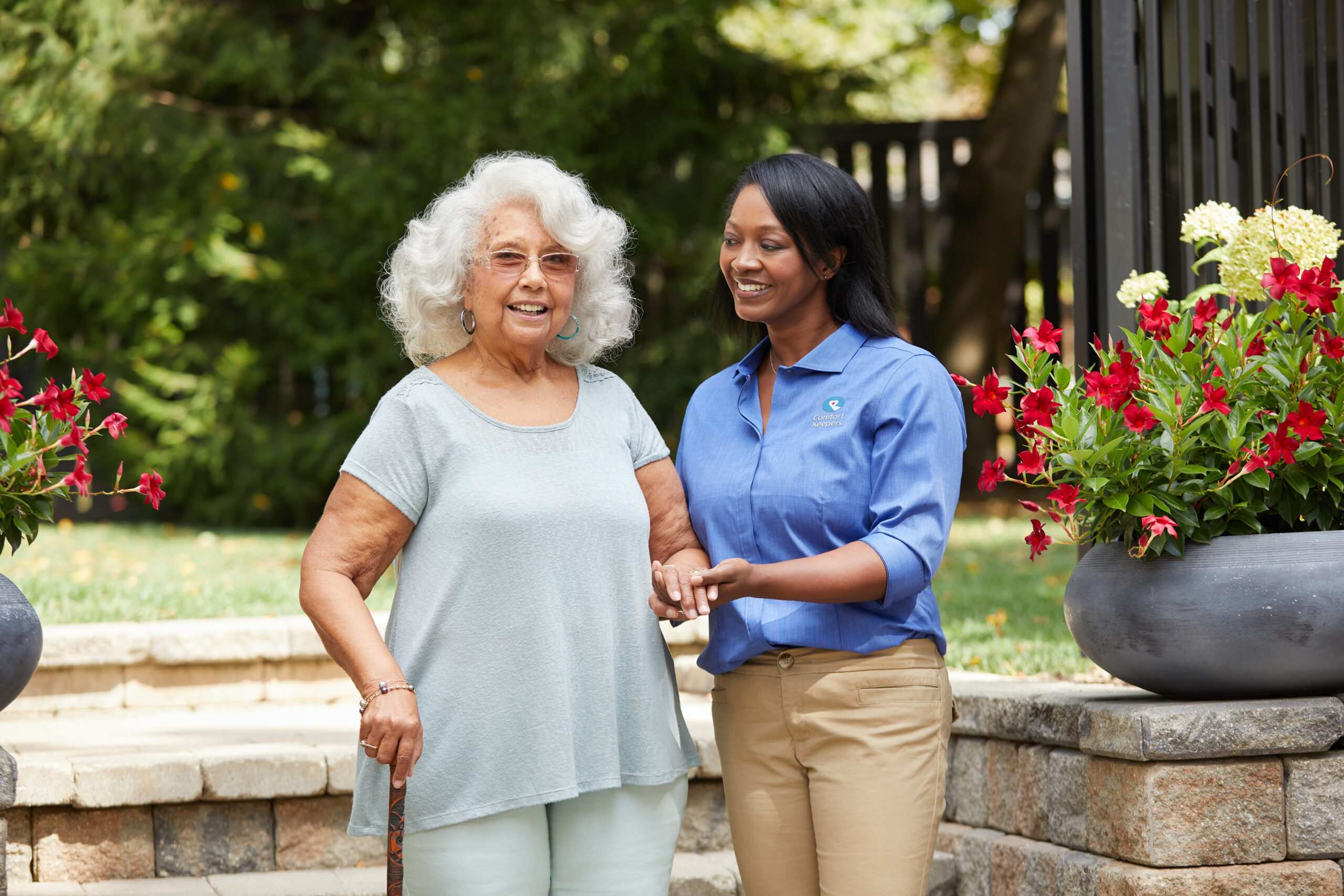Engaging Communications with Older Adults
Home Care Blog>In Home Care | February 15, 2022
Engaging Communications with Older Adults
Engaging Communications with Older Adults | Effective communicators know their audience, and they change their communications to suit those audiences. The language a doctor uses when consulting with colleagues will not be the same, hopefully, as that used when speaking with patients. Mothers speak with their children differently than they would with their spouses. How you verbally interact on a job interview will differ from how you interact when out to dinner with friends, or with the neighbor, or with the sales clerk at the grocery store. By changing your communication strategy, you ensure that your message is successfully transmitted to the other person.
Fast Facts
Many conditions can cause communication problems in adults, including dementia, strokes, brain injuries, Huntington’s disease, and ALS. Medications can also affect memory, which can in turn affect comprehension.
Sometimes, though, needed changes in communication are not always instantly recognized. Communication needs for older adults can sometimes change slowly and imperceptibly over time. These changes occur due to sensory and memory loss, slower comprehension times, psychological factors, and aging processes. This inadvertently can increase communication barriers between older adults and their loved ones as their loved ones continue to use the same communication strategy with the older person without realizing that their strategy should change for their message to be comprehended.
When this happens, people can get frustrated and angry as they feel the older person is “just not listening to them.” In some cases this can escalate to the person shouting at the senior in a poor attempt to “get their message across.” This can even lead to elder abuse as tempers flare. At the other end of the spectrum, communications between older individuals and their loved ones can cease as the communication divide increases.
Related Article: Combating Lonliness in Seniors
Situations like these can be avoided by changing communication strategies. The American Speech-Language-Hearing Association provides the following useful tips to ensure you are speaking with, not speaking at, an older adult:
- Reduce background noises that may distract the other person. Move to a quieter area or turn off noisy devices.
- Ease into conversations by speaking first of casual matters then move into discussing more serious topics. This acts as a sort of “warm-up period” for the conversation.
- Discuss topics that are familiar to the person so he or she can become engaged in the conversation.
- Avoid switching quickly from topic to topic. Stay focused.
- Avoid verbosity. Speak in short sentences and ask short questions. (This is probably a good practice no matter what the age of the listener is.)
- Allow the older person time to respond and allow him or her to reminisce.
- When decisions need to be made, offer the older adult choices rather than asking open-ended questions.
- Listen actively to what the older person is saying. If the message is unclear, look for physical clues and ask for clarification.
Remember, a conversation is two way, so allow the older adult to converse comfortably and change your approach as necessary. Refrain from speaking to the older person as if he or she were a child. Doing so can strengthen relationships and provide an enjoyable experience for all parties involved.
Comfort Keepers® can help.
Our trained caregivers help provide senior clients with the highest quality of life possible to keep them happy and healthy at home. Our Interactive Caregiving™ engages clients physically, emotionally, mentally and socially ─ and provides a system of care that addresses safety, nutrition, mind, body, and activities of daily living (ADLs). Contact Comfort Keepers Calgary for more information on services provided to Seniors in Calgary, Alberta.
Bonus Article: What to Expect with Home Care
References
American Speech-Language-Hearing Association. (n.d.). Communicating better with older people. Retrieved from http://www.asha.org/public/speech/development/Communicating-Better-With-Older-People/.
The Gerontological Society of America. (2012). Communicating with older adults: An evidence-based review of what really works. Retrieved from http://www.agingresources.com/cms/wp-content/uploads/2012/10/GSA_Communicating-with-Older-Adults-low-Final.pdf.
Individualized Home Care Options
Long-Term Home Care, 24 Hour Home Care & Short Term Care Options Customized for You







